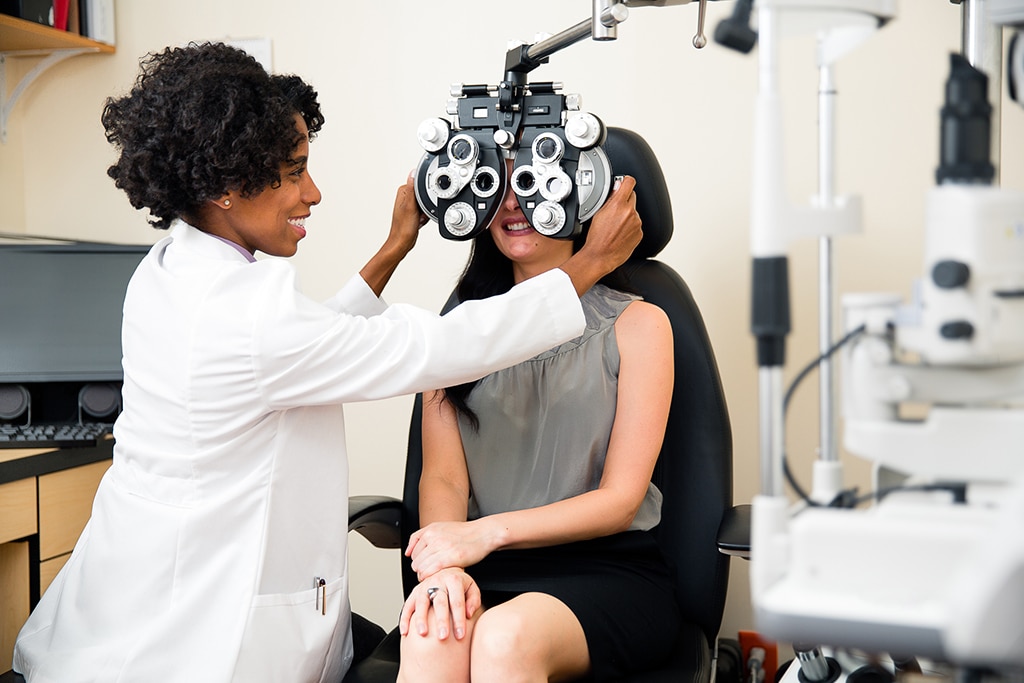Why Selecting an Eye Doctor Optometrist is Important for Your Eyes
Recognizing the Comprehensive Role of an Eye Doctor in Modern Eye Care
In the advancing landscape of health care, the range of an eye doctor's function has dramatically expanded, expanding well beyond the boundaries of conventional vision improvement. With improvements in innovation and a boosting focus on preventative care, eye doctors are integral in diagnosing and taking care of persistent eye conditions, while likewise participating in early disease detection. Their expertise in innovative analysis strategies such as optical comprehensibility tomography is vital. But just how do these obligations converge with their function in promoting overall eye health and wellness, and what does this mean for patient outcomes in a collaborative healthcare environment?
Expanded Range of Method
In current years, the role of optometrists has developed dramatically, with numerous specialists currently embracing a broadened range of technique that extends beyond standard eye evaluations. Their duties currently encompass a large range of solutions, including prescribing medications for ocular problems, managing persistent eye diseases, and doing small surgical procedures.
Further, eye doctors are currently much more included in collaborative treatment, working carefully with ophthalmologists, primary care medical professionals, and various other health care specialists to make sure alternative client care. This interprofessional cooperation is critical in handling intricate cases that require a multidisciplinary approach. In addition, eye doctors are playing a pivotal function in public health campaigns, such as vision testings and eye health education and learning, focused on boosting area health end results.
The broadened scope of practice for optometrists not just improves their capacity to provide thorough care yet likewise resolves the growing demand for obtainable and efficient eye treatment services, adding to general medical care renovations.
Early Disease Discovery
Early detection of eye diseases is increasingly becoming a focal point in the increased duty of eye doctors. As key eye treatment service providers, eye doctors are distinctly positioned to identify early indicators of eye conditions such as glaucoma, macular deterioration, diabetic person retinopathy, and cataracts. This pivotal role is vital, as early medical diagnosis can significantly boost the monitoring and prognosis of these conditions, possibly avoiding vision loss and enhancing individual outcomes.
Optometrists use detailed eye examinations to find refined changes in vision and eye health and wellness. These evaluations typically consist of analyses of aesthetic acuity, intraocular pressure, and retinal wellness. The capability to identify very early signs of systemic health and wellness issues, such as hypertension and diabetes mellitus, with ocular signs further underscores the significance of regular eye exams. Early intervention is not just beneficial in maintaining vision yet also in decreasing healthcare expenses related to advanced illness therapies.
Additionally, eye doctors play a crucial role in person education and learning, highlighting the importance of routine eye evaluations as component of general health care. By fostering a positive method to eye treatment, eye doctors add considerably to public health and wellness, ensuring illness are captured and taken care of effectively prior to they can proceed.
Advanced Diagnostic Strategies
Advanced diagnostic strategies have actually reinvented the method of optometry, making it possible for practitioners to find and keep an eye on eye illness with unmatched precision. These advancements have actually changed the optometric landscape, permitting more innovative assessment and treatment methods. Technologies such as optical comprehensibility tomography (OCT) supply high-resolution, cross-sectional photos of the retina, assisting in early detection of problems like glaucoma and macular deterioration. This non-invasive method has ended up being indispensable in modern optometry, using thorough insights into retinal layers.
One more crucial advancement is digital retinal imaging, which records detailed sights of the retina making use of high-def electronic cameras. This technology is important in recognizing modifications in retinal framework with time, thus aiding in the management of problems like diabetic retinopathy. Aesthetic field screening, boosted by computer-aided systems, permits precise mapping of a person's line of vision, important in tracking and diagnosing glaucoma development.
Corneal topography, another significant analysis device, produces comprehensive maps of the cornea's surface area. This is specifically beneficial in suitable get in touch with lenses and go right here preparing refractive surgical procedure. These innovative analysis techniques jointly allow eye doctors to offer positive, targeted care, ensuring far better individual end results and reinforcing their crucial function in eye health and wellness monitoring.
Managing Persistent Eye Problems
Taking care of persistent eye problems is a keystone of optometric treatment that needs an extensive understanding of numerous ocular illness and here their long-lasting ramifications. Eye doctors play a pivotal role in diagnosing, handling, and monitoring conditions such as glaucoma, diabetic retinopathy, and age-related macular deterioration. These conditions, if left unattended, can result in substantial aesthetic impairment or loss of sight, highlighting the important importance of ongoing care and administration.
Eye doctors use a variety of analysis devices, including optical comprehensibility tomography (OCT), visual area testing, and fundus digital photography, to assess the development of these chronic conditions. By carefully keeping an eye on modifications in ocular health and wellness, eye doctors can change treatment strategies to minimize illness progression. This may involve suggesting drugs, suggesting way of life alterations, or collaborating with eye doctors for medical interventions when essential.

Role in Preventive Care
Precautionary care is an essential element of optometry that focuses on preserving eye wellness and preventing the beginning of ocular conditions. Eye doctors play a critical duty in very early detection and prevention, using routine eye evaluations to identify threat factors and subtle changes in ocular health and wellness. Eye Doctor Optometrist. These assessments are not just about vision modification but include a comprehensive evaluation of eye features and structures, making it possible for the recognition of conditions such as try this web-site glaucoma, cataracts, and macular degeneration at a very early phase
In enhancement to diagnostics, optometrists enlighten individuals on way of life choices that advertise eye health, such as proper nourishment, UV security, and the relevance of routine eye examinations. They recommend on the correct usage of electronic devices to protect against digital eye stress, an expanding worry in the electronic age. Optometrists likewise provide guidance on safety eyeglasses for entertainment and work tasks, reducing the threat of injury.
Preventive eye care reaches systemic health issues that show up in the eyes, such as diabetes mellitus and hypertension. By collaborating with various other health care specialists, eye doctors add to all natural client care, stressing the interconnectedness of systemic and ocular health and wellness. This aggressive approach is vital in securing aesthetic skill and overall wellness.
Conclusion
Optometrists currently occupy a crucial duty in modern-day eye care, identified by an expanded extent that consists of identifying and handling chronic eye problems, prescribing medications, and doing small surgeries (Eye Doctor). Their know-how in very early condition discovery is boosted by advanced analysis techniques such as optical coherence tomography and digital retinal imaging. By emphasizing precautionary care and individual education, optometrists add significantly to total eye health and wellness, working together with other medical care experts to make certain comprehensive and reliable individual outcomes

In enhancement to diagnostics, eye doctors educate people on lifestyle selections that promote eye health, such as correct nourishment, UV protection, and the significance of normal eye examinations.Preventative eye care prolongs to systemic wellness concerns that materialize in the eyes, such as diabetes mellitus and hypertension.Optometrists currently inhabit an essential duty in modern eye care, characterized by an expanded range that includes detecting and taking care of chronic eye problems, suggesting drugs, and carrying out small medical procedures.